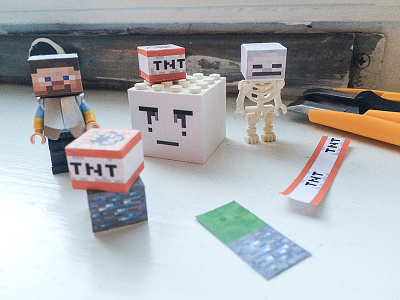
Amazon.com: LEGO Minecraft The Crafting Box 3.0 21161 Minecraft Brick Construction Toy and Minifigures, Castle and Farm Building Set, Great Gift for Minecraft Players Aged 8 and up (564 Pieces) : Toys & Games

How to Build: Lego Minecraft Steve Video | Discover Fun and Educational Videos That Kids Love | Epic Children's Books, Audiobooks, Videos & More






















